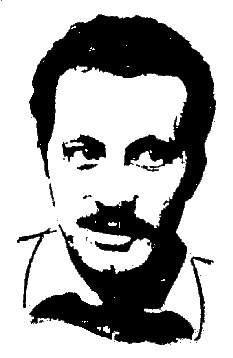GHASSAN KANAFANI
(1936 - 1972)
|
Ghassan Fayiz Kanafani was a Palestinian writer and a leading member of the Popular Front for the Liberation of Palestine. Kanafani was born on April 9, 1936, in city of Acre (Akka) under the British Mandate of Palestine. His father was a lawyer, and Ghassan was sent to French missionary school in Jaffa. During the 1948 Arab-Israeli War, Kanafani and his family were forced into exile in neighbouring Lebanon, but soon moved on to Damascus, Syria, to live there as Palestinian refugees. Kanafani completed his secondary education in Damascus, receiving a United Nations Relief and Works Agency for Palestine Refugees (UNRWA) teaching certificate in 1952. He enrolled at Department of Arabic Literature at the University of Damascus and began teaching in UNRWA schools in the refugee camps, but before he could complete his degree, he was expelled and exiled to Kuwait for his political activities with the Movement of Arab Nationalists. In 1960, he relocated once again to Beirut, where he began editing a series of pan-Arabist and Nasserist newspapers. He also began to publish novels and pieces on historical and political issues, including seminal editions of Palestinian poets and critical works on Israeli and Zionist literature. When, in 1967, George Habash led the dissolution of the MAN and the formation of the Popular Front for the Liberation of Palestine, Kanafani joined and became one of its spokesmen. In 1969, he drafted a PFLP program in which the movement officially took up Marxism-Leninism. He also edited the movement's newspaper, al-Hadaf (The Target), which he had founded in 1969, and contributed to it until his death with political, cultural and historical essays and articles. He was assassinated on July 9, 1972, in Beirut by car bomb planted by the Mossad. |
|
POLITICAL AND HISTORICAL WRITINGS 1972: The 1936-39 Revolt in Palestine
FICTION 1956: Letter from Gaza
Related 1973: Ghassan Kanafani by Anni Kanafani |
